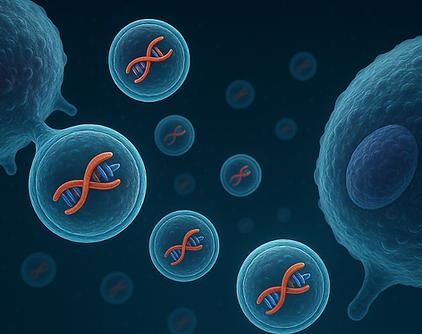
"Ingenuity is the courage to have a go"
- Dr. Hiromitsu Nakauchi, interview with the University of Tokyo (2016)
The Nakauchi lab is committed to attracting top researchers from around the world. This website introduces our team, highlights our primary research projects, and presents the background of our Principal Investigator along with key past publications. By sharing our mission and discoveries, we aim to foster curiosity, collaboration, and innovation—encouraging talented individuals and funders to join us in pushing the boundaries of science.
Translation of our discoveries in basic research into practical medical applications

Projects
Hiromitsu Nakauchi
M.D., Ph.D.
Hiro Nakauchi, M.D., Ph.D., professor of genetics joined the faculty at Stanford University in February 2014. After earning medical degree from Yokohama City University School of Medicine and a Ph.D. in immunology from the University of Tokyo Graduate School of Medicine, he came to Stanford as a postdoctoral scholar in the laboratory of the late Prof. Leonard Herzenberg. While at Stanford, he isolated CD8 genes that encode critically important molecules for immune cells to recognize virus infected or cancer cells. After returning to Japan, he started working on hematopoietic stem cells in his laboratory at RIKEN Life Science Research Center. In 1994, he became Professor of Immunology at the University of Tsukuba where he demonstrated that a single hematopoietic stem cell could reconstitute the entire hematopoietic system, a definitive experimental proof for the “stemness”. Since April 2002, he has been a Professor of Stem Cell Therapy in the Institute of Medical Science at The University of Tokyo (IMSUT). In 2008, he was appointed Director of newly established Center for Stem Cell Biology and Regenerative Medicine at IMSUT. He returned to Stanford University as a faculty to continue his stem cell research at the Institute of Stem Cell Biology and Regenerative Medicine.

In the Nakauchi Lab, we are working on uncovering new diseases, elucidating the causes of disease, and developing therapeutic modalities by connecting the knowledge and methodology of basic science including immunology, molecular biology, cell biology, and developmental engineering with clinical medicine. Our ultimate goal is to contribute to establishing new frontiers of stem cell therapy and to make clinical applications of stem cells a reality.
Main Publications
Scientific Contributions and Research Impact
In 1994, Dr. Hiromitsu Nakauchi provided the first definitive evidence that a single hematopoietic stem cell (HSC) could regenerate the entire blood and immune system, establishing a foundational principle of modern stem cell biology. He later pioneered the concept of interspecies organogenesis through blastocyst complementation, demonstrating that functional organs—such as a rat pancreas—could be grown in a mouse and vice versa. This groundbreaking approach opened the possibility of generating human organs in larger animals for transplantation. In 2019, Dr. Nakauchi became the first scientist in Japan to receive government approval to create human-animal embryos, a milestone that drew international attention and highlighted both the technical promise and ethical complexity of regenerative medicine.



